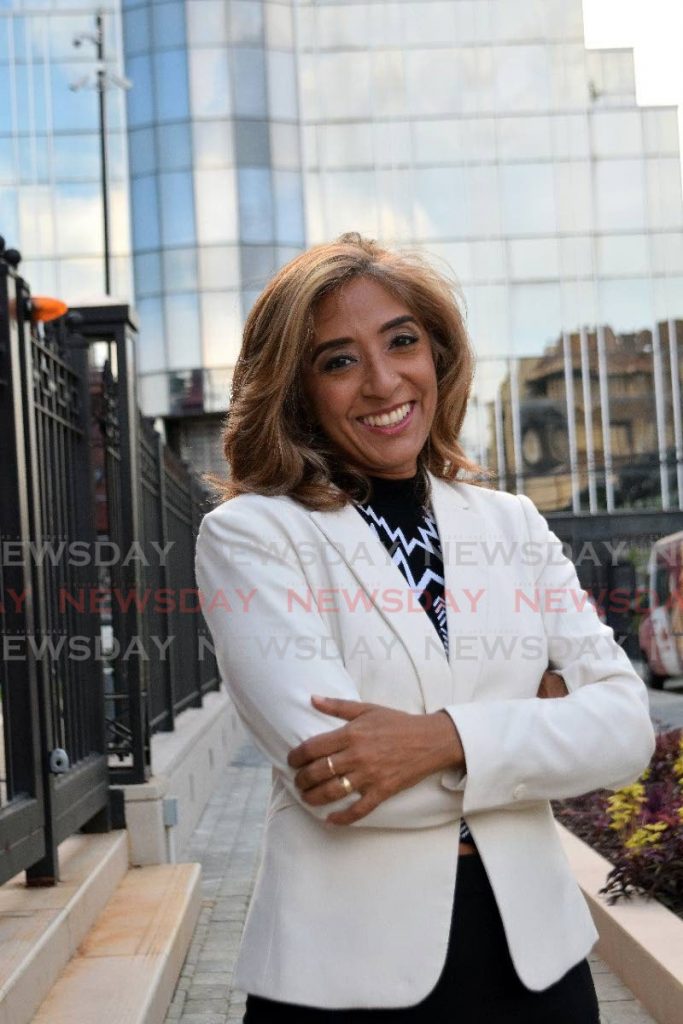Towards a path imagined

DR GABRIELLE JAMELA HOSEIN
I’VE DELAYED this column for a long time, intimidated by the challenge of writing in homage to my long-time friend and ally, Colin Robinson. We don’t always agree, but it’s impossible not to love Colin, his ironic sense of humour and counter-intuitive analyses of jostling over power, his detailed eye for clever strategy, and easy flow of insights and wise words.
More than ten years ago, Colin gave a speech I’ll never forget. It was on reproductive rights, but he somehow wove in Spiritual Baptists, LBGTI folk and others you wouldn’t think share the same cause. If all who understood discrimination or life at the margins of state law and social acceptance were able to connect to each other’s desires for inclusion, then we could strengthen each other’s struggle to equally belong as many different bodies.
In another decade-old memory, I arrived at a UNC rally and was captured by the sight of the CAISO logo flying in the sea of yellow. Colin was there, with CAISO’s “6 in 6” campaign which advocated for six policy and leadership steps on sexual orientation and gender identity in six months after the May 24, 2010, election. It was a bold insertion of a right to citizenship, but a hard day for the young people accompanying Colin who encountered homophobia which he had to mentor them through.
In the decade that has followed, there have been innumerable examples of Colin’s pathbreaking courage and his sensitive mentorship, and his insistence that marginalised people can make “liveable lives” in the Caribbean. He’s kept his eye on key goals, constantly refining language, reach, movement-building, leadership and actions to transform unjust power. There are core values he’s returned to again and again. For me, they are his legacy, the path he’s imagined is our best route. I asked him about them a few months ago.
What follows are excerpts from that conversation, focusing on Colin’s politics of relationship-building and his call for us to be imaginative in the ways we claim and we create ourselves.
In Colin’s words, “If we can build relationships that can be sustained across our differences, we have a basis for sharing the nation. We must show up and earn value among others by being in solidarity. The strategic route to equality and inclusion is not rights claims, which can get you there, but can't get you there in a sustainable way. When you make a claim, somebody has to lose and that’s the challenge. It’s based on pressure, it’s contingent, it’s not values-driven or sustainable. Rights fulfilment is about focusing on how to sustain the fulfilment of rights and not just the claim. Feminist nationalism, sharing the nation, is based on shared values and a different approach to power through listening, seeing yourself in other people’s stories.
“We have to put out values that people find themselves in, practise patience and solidarity and forgiveness that doesn’t enable abuse of power and patriarchy, but cements those relationships. Allies don’t speak for you, they listen to your dreams and concerns. Listening can be transformative. Constant attention to solidarity starts with listening to each other’s dreams of belonging. When you show up in relationships, it is transformative.
“Imagination is as central to liberation as power. If you can’t imagine it, it doesn’t exist. The power of revolution is imagining the world as it doesn’t yet exist. We have to imagine the Caribbean imaginatively. And that’s where we fail, we imagine, but not imaginatively enough. Imagination and innovation are everywhere but not in relation to the most enduring structures of justice in our lives.
“We turn instead to order. Procedural justice and human rights is still a favour, somebody you know, a niceness. It’s not a core vision, there is still a distributive idea that we don’t all get it. We don’t know how to create a system that creates procedural fairness, we cannot imagine systems that enable. Our imaginations are around order, violence and punishment, we value rules above justice. That’s the frustration.
“We have not been able to imagine an economy and structures that are enabling, it’s still outside of the order, in Carnival, at the side of the road. Imagine is the one thing that humans do. The constant turn to authoritarianism is undermining the most valuable resource we have, which is our innovativeness.
“We put things together in a way that they have not been put before. Whether it is in terms of art or technology or society, we innovate. We have an ability to imagine futures that are not the present. It’s also about how to enter the world that way, that political work is about imagination and transformation. Imagine the future you want to create.”
Colin, our gratitude for your dreams and guidance, laughter and words. They enable so many of us to walk a path you’ve imagined, coming closer to achieving relationships of loving freedom with each other, and believing, with optimism and creativity, that it can and will happen.
Diary of a mothering worker
motheringworker@gmail.com
Entry 408
A photo of Marina Salandy-Brown was inadvertently used with TTUTA's column on Tuesday. We apologise for any confusion or embarrassment caused.

Comments
"Towards a path imagined"